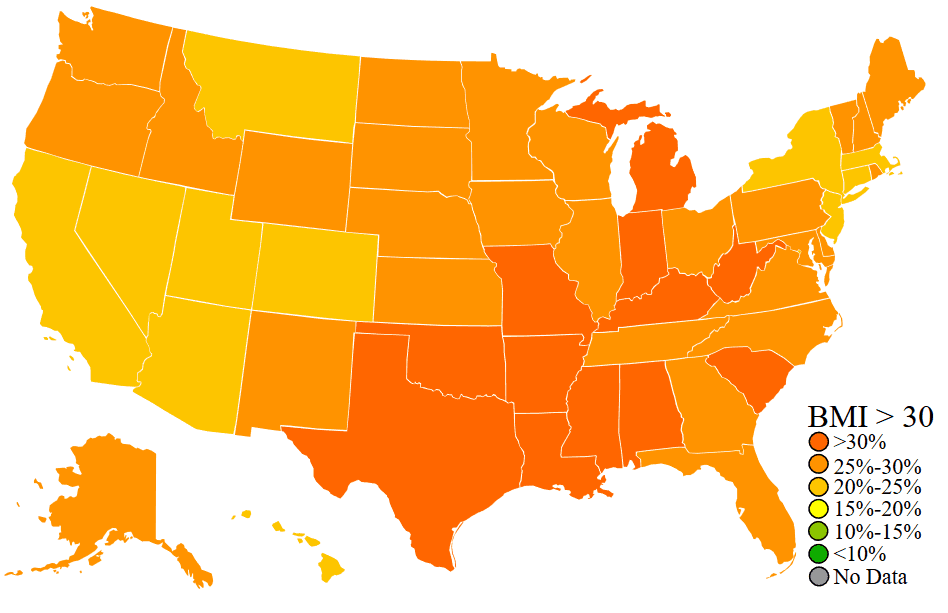The American Society for Metabolic and Bariatric Surgery (ASMBS) funded a survey of 1509 adults representing the US household population. The survey was completed in 2016 and aimed at evaluating public perception of obesity.
The results show that Americans consider obesity as a disease with serious health consequences like heart disease and diabetes. Interestingly, women and persons with higher level of education are more likely to consider obesity as a multifactorial problem as opposed to a lifestyle choice. While the majority believes that something must be done to prevent obesity, older individuals, lower education level, and republicans think that it is up to the individual rather than the healthcare system to prevent obesity.
The survey further shows that most Americans favor diet and exercise as a safe and effective weight loss solution. The majority of surveyed individuals are unsure about the effectiveness and safety of weight loss surgery. 68% believe that living with obesity is riskier than having weight loss surgery. 25% of obese individuals have considered weight loss surgery and women were 3 times likely than men to have considered weight loss surgery. Among those who have considered surgery for weight loss, and did not proceed with surgery, financial cost was the main impediment.
The American public perceives obesity as a health risk factor. Yet, most Americans are still confused about the nature, causes and available treatment options for obesity. The majority battle obesity using diet and exercise without consulting with a healthcare professional. In the eye of the public, obesity remains a lifestyle issue rather than a disease.
At Houston Weight Loss Surgery Center, we stress the crucial point and basic fact that while diet and exercise are essential at preventing obesity, they are ineffective treatment options for obesity. In other words, adopting a healthy lifestyle, eating a clean and light diet, and exercising on a regular basis are effective means to ward off obesity. Once obesity sets in, however, it is hard to shed the extra weight without reversing the underlying metabolic abnormality. Today, sleeve gastrectomy and gastric bypass surgery are the most effective and safest tools to reverse the pathophysiology of obesity. Following weight loss surgery, adopting a healthy lifestyle is crucial to maintaining weight loss. Without weight loss surgery, calorie restriction and starvation by themselves are less likely to lead to permanent weight loss.

